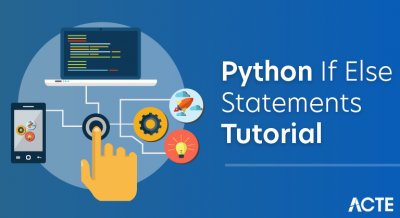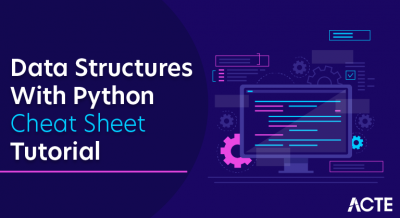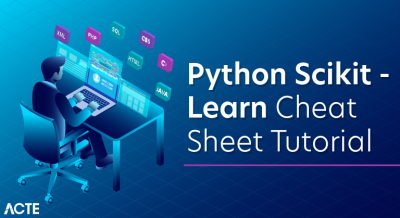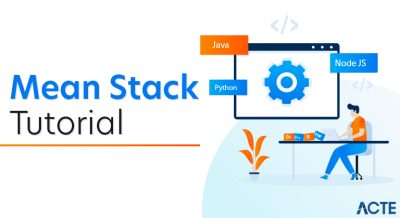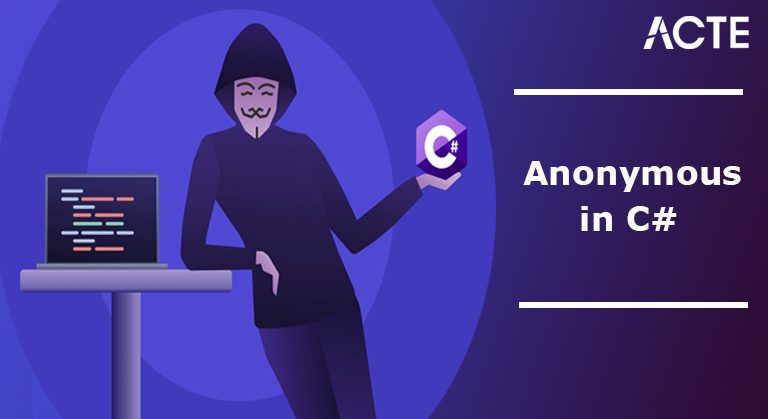
- Introduction to Anonymous Methods and Lambdas
- Anonymous Types
- Anonymous method restrictions
- Anonymous Methods and strategies
- Significant Sticky
- Lambda expressions
- Anonymous Method Limitations
- Lambdas to the salvage
- Benefits of Lambda Expression
- Delegates
- Key points
- Conclusion
- var v = new { Amount = 108, Message = “Hi” };
- // Rest the mouse pointer over v.Amount and v.Message in the accompanying
- // explanation to confirm that their construed types are int and string.
- Console.WriteLine(v.Amount + v.Message);
- Unknown sorts commonly are utilized in the select statement of a question expression to return a subset of the properties from each item in the source grouping. For more data about questions, see LINQ in C#.
- Unknown sorts contain at least one public read-just properties. No different sorts of class individuals, like strategies or occasions, are substantial. The expression that is utilized to introduce a property can’t be invalid, a Anonymous capacity, or a pointer type.
- The most widely recognized situation is to instate an unknown kind with properties from another sort. In the accompanying model, expect that a class exists that is named Product. Class Product incorporates Color and Price properties, along with different properties that you are not keen on. Variable items is an assortment of Product objects. The Anonymous kind statement begins with the new catchphrase. The statement instates another sort that utilizes just two properties from Product. Utilizing unknown sorts makes a more modest measure of information be returned in the question.
- On the off chance that you don’t indicate part names in the unknown sort, the compiler gives the Anonymous kind individuals a similar name as the property being utilized to instate them. You give a name to a property that is being introduced with an expression, as displayed in the past model. In the accompanying model, the names of the properties of the Anonymous sort are Color and Price.
- delegate void NumberChanger (int n);
- … NumberChanger nc = Delegate (int x) {
- Console.WriteLine (“anonymous method: {0}”, x);
- };;
- Anonymous strategies are presented in C# 2.0
- Anonymous strategy is a square of code, which is utilized as a boundary for the agent.
- A Anonymous strategy can be utilized anyplace. A representative is utilized and is characterized in line, without a technique name with the discretionary boundaries and a strategy body.
- The extent of the boundaries of a Anonymous strategy is the unknown technique block.
- A Anonymous technique can utilize nonexclusive boundary types like some other strategy.
- A variable, pronounced external the unknown technique can be gotten to inside the Anonymous strategy.
- A variable, pronounced inside the Anonymous strategy can’t be gotten to outside the unknown technique.
- We utilize Anonymous technique in occasion taking care of.
- A Anonymous strategy, proclaimed without enclosure can be doled out to a representative with any signature.
- A Anonymous strategy can’t get to the ref or out boundaries of an external extension.
- As you can see here in the model given above, unknown strategy sentence structure is bit more enthusiastically to compose and make due.
- In C#3.0 Lambda expressions are presented. It gives a basic, more succinct, practical punctuation to compose unknown techniques. The word lambda is taken from the lambda analytics, where everything is communicated as far as capacities.
- A lambda expression is composed as a boundary list, trailed by the => (named as “goes into”) image, trailed by an expression or an assertion block. Lambda expression is composed, as displayed beneath.
- ArgumentsToProcess => StatementsToProcess
- It can’t contain bounce expression like goto, break or proceed.
- It can’t get to ref or out boundary of an external technique.
- It can’t have or get to risky code.
- It can’t be utilized on the left half of the is administrator.
- The catch condition and boundaries can both be unfilled in the event that they are not required.
- The return type is discretionary, and whenever overlooked, auto will be accepted (accordingly utilizing type derivation used to decide the bring type back). While we recently noticed that type deduction for work return types should be kept away from, in this specific circumstance, it’s fine to utilize (on the grounds that these capacities are normally so trifling).
- Additionally note that lambdas have no name, so we don’t have to give one.
- The lambda should contain similar number of boundaries as the representative kind.
- Each information boundary in the lambda should be verifiably convertible to its relating delegate boundary.
- The return worth of the lambda (if any) should be verifiably convertible to the representative’s bring type back.
- A lambda articulation in itself doesn’t have a sort on the grounds that the normal kind framework has no inherent idea of “lambda articulation.” However, it’s occasionally advantageous to talk casually of the “type” of a lambda articulation. That casual “type” alludes to the representative sort or Expression type to which the lambda articulation is changed over.
- Starting with C# 10, a lambda articulation might have a characteristic sort. Rather than constraining you to proclaim a representative sort, for example, Func<...> or Action<...> for a lambda articulation, the compiler might derive the agent type from the lambda articulation. For instance, think about the accompanying affirmation:
- A variable, pronounced inside the Anonymous strategy can’t be gotten to outside the unknown technique.
- No dangerous code can be gotten to inside the Anonymous strategy block.
- Unknown strategies are not permitted on the left half of the is administrator.
- We utilize Anonymous strategy in occasion taking care of.
- An unknown technique, pronounced without enclosure can be allocated to a representative with any signature.
- Dangerous code can’t be gotten to inside an unknown technique.
- An unknown strategy can’t get to the ref or out boundaries of an external degree.
- A Anonymous strategy can’t get to the ref or out boundaries of an external extension.
Introduction to Anonymous Methods and Lambdas
Anonymous strategies and lambda expressions give a method for utilizing inline code. They will decrease the lines of code and are helpful where a strategy is being utilized just a single time and the technique definition is short.
Anonymous Types
Anonymous sorts give a helpful method for exemplifying a bunch of added just properties to a solitary article without having to unequivocally characterize a sort first. The sort name is created by the compiler and isn’t accessible at the source code level. The sort of every property is derived by the compiler.
You make Anonymous sorts by utilizing the new administrator along with an item initializer. For more data about object initializers, see Object and Collection Initializers. The accompanying model shows an unknown kind that is instated with two properties named Amount and Message.
As the name implies, anonymous methods are unnamed methods. Anonymous methods in C# can be defined using the delegate keyword and assigned to delegate type variables.
Lambda articulations and tuples
Beginning with C# 7.0, the C# language offers worked in help for tuples. You can give a tuple as a contention to a lambda articulation, and your lambda articulation can likewise return a tuple. Now and again, the C# compiler utilizes type deduction to decide the kinds of tuple parts.
You characterize a tuple by encasing a comma-delimited rundown of its parts in enclosures. The accompanying model uses a tuple with three parts to pass a succession of numbers to a lambda articulation, which pairs each worth and returns a tuple with three parts that contain the consequence of the augmentations.
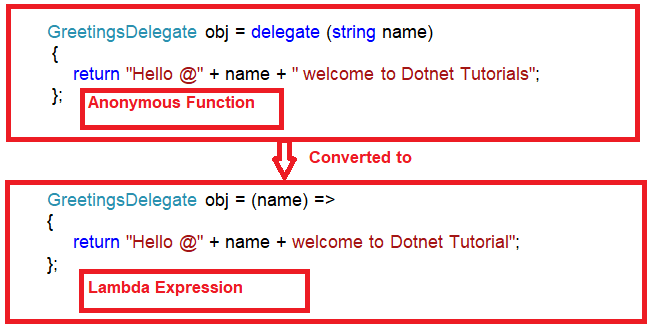
Anonymous method restrictions
It cannot contain jump statements such as goto, break, and continue. You cannot access the ref or out parameters of the external method. You cannot have or access insecure code. Not available on the left side of the is operator. Anonymous methods are declared with the Delegate keyword when the delegate instance is created.
Example:
Code block Console.WriteLine (“anonymous method: {0}”, x); The body of the anonymous method. The delegate can be called in the same way for both anonymous and named methods. H. Pass method parameters to the delegate object.
Lambdas with the standard question administrators
1. LINQ to Objects, among different executions, have an info boundary whose type is one of the Func<'TResult> group of conventional agents. These representatives use type boundaries to characterize the number and sort of info boundaries, and the return kind of the agent. Func delegates are valuable for epitomizing client characterized articulations that are applied to every component in a bunch of source information. For instance, consider the Func<'T,TResult> delegate type:
2. The representative can be launched as a Func<'int, tool> example where int is an info boundary and bool is the bring esteem back. The return esteem is constantly indicated in the last sort boundary. For instance, Func<'int, string, tool> characterizes an agent with two info boundaries, int and string, and a return kind of bool. The accompanying Func delegate, when it’s summoned, returns a Boolean worth that demonstrates whether the information boundary is equivalent to five:
3. You can likewise supply a lambda articulation when the contention type is an Expression<'TDelegate>, for instance in the standard question administrators that are characterized in the Queryable kind. At the point when you indicate an Expression<'TDelegate> contention, the lambda is assembled to an articulation tree.
4. The compiler can derive the kind of the info boundary, or you can likewise determine it expressly. This specific lambda articulation counts those numbers (n) which when partitioned by two have a rest of 1.
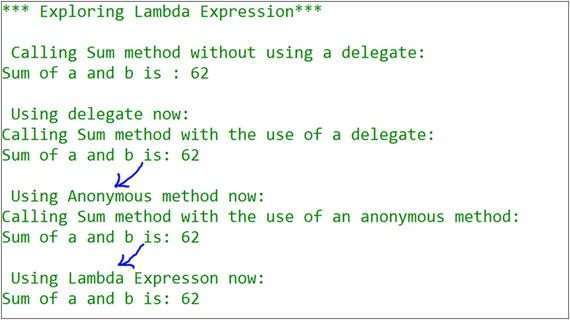
Anonymous Methods and strategies

Significant Sticky
Lambda expressions
As I clarified with regards to Anonymous strategies, it assists with composing the code blocks in-line, where representatives are required.
There are two kinds of Lambda expressions
Expression Lambda
It has just a single expression, with no wavy support or bring proclamation back.
Explanation Lambda
It is an assortment of explanations. The model composed with Anonymous strategies can be revised, utilizing expression lambda. In the code given underneath, Find() strategy for nonexclusive List<'T> class takes lambda expression to look.
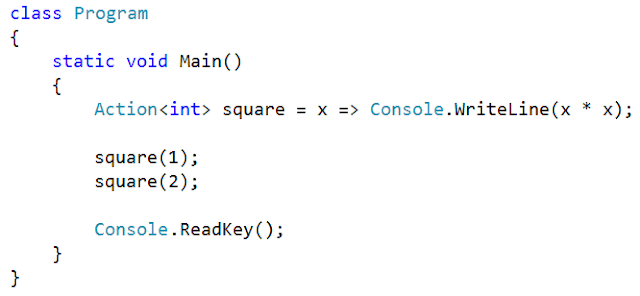
Anonymous Method Limitations
Lambdas to the salvage
A lambda expression (likewise called a lambda or conclusion) permits us to characterize a Anonymous capacity inside another capacity. The settling is significant, as it permits us both to keep away from namespace naming contamination, and to characterize the capacity as near where it is utilized as could be expected (giving extra setting).
The linguistic structure for lambdas is one of the more bizarre things in C++, and takes a touch of becoming accustomed to. Lambdas take the structure:
Benefits of Lambda Expression
Less Lines of Code − One of the most advantages of a lambda expression is to decrease how much code. We realize that lambda expressions can be utilized uniquely with a practical point of interaction. For example, Runnable is a useful point of interaction, so we can without much of a stretch apply lambda expressions.
Successive and Parallel execution support by passing conduct as a contention in strategies − By involving Stream API in Java 8, the capacities are passed to assortment techniques. Presently it is the obligation of assortment for handling the components either in a successive or equal way.
Higher Efficiency − By utilizing Stream API and lambda expressions, we can accomplish higher effectiveness (equal execution) if there should arise an occurrence of mass procedure on assortments. Additionally, lambda expression helps in accomplishing the interior cycle of assortments rather than outside emphasis.
Delegates
I’ll begin with a string substitution issue, which I will acquire from an inquiry presented on the asp.net discussions which concerned the Regex.Replace() strategies. The over-burden strategy I am especially inspired by is the one that takes (string, MatchEvaluator). The last contention – MatchEvaluator – is a Delegate, and it addresses the strategy that will be called each time a match is found during a Replace activity. The issue that should have been addressed was that the examiner expected to supplant different occasions of
Type induction in lambda articulations
While composing lambdas, you frequently don’t need to indicate a sort for the info boundaries on the grounds that the compiler can deduce the sort in light of the lambda body, the boundary types, and different elements as depicted in the C# language determination. For the majority of the standard question administrators, the primary information is the kind of the components in the source arrangement. On the off chance that you’re questioning an IEnumerable<'Customer>, the information variable is derived to be a Customer object, and that implies you approach its techniques and properties:
customers.Where(c => c.City == “London”);
The common principles for type surmising for lambdas are as per the following:
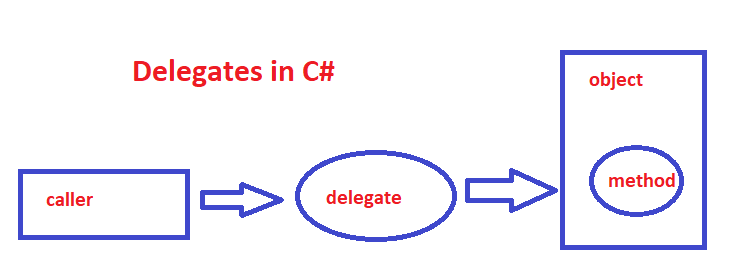
The regular sort of a lambda articulation
var parse = (string s) => int.Parse(s);
The compiler can induce parse to be a Func<'string, int>. The compiler picks an accessible Func or Action delegate if an appropriate one exists. In any case, it blends a representative sort. For instance, the representative sort is orchestrated assuming the lambda articulation has ref boundaries. Whenever a lambda articulation has a characteristic sort, it tends to be doled out to a less unequivocal sort, like System. Item or System. Delegate:
Capture of external factors and variable degree in lambda articulations
Lambdas can allude to external factors. These are the factors that are in scope in the strategy that characterizes the lambda articulation, or in scope in the sort that contains the lambda articulation. Factors that are caught thusly are put away for use in the lambda articulation regardless of whether the factors would some way or another leave scope and be trash gathered. An external variable should be doled out before it tends to be consumed in a lambda articulation. The accompanying model exhibits these guidelines:
The adhering to guidelines apply to variable degree in lambda articulations:
1. A variable that is caught will not be trash gathered until the agent that references it becomes qualified for trash assortment.
2. Factors presented inside a lambda articulation aren’t noticeable in the encasing technique.
3. A lambda articulation can’t straightforwardly catch an in, ref, or out boundary from the encasing technique.
4. A return proclamation in a lambda articulation doesn’t make the encasing strategy return.
5. A lambda articulation can’t contain a goto, break, or proceed with proclamation assuming the objective of that hop explanation is outside the lambda articulation block. It’s likewise a blunder to have a leap proclamation outside the lambda articulation block in the event that the objective is inside the square.
Key points
Conclusion
I trust this article has achieved the objective of sorting out the six confounding agent calls toward the start of the article and clarifying the exchange between delegates, unknown techniques, and lambda expressions.


